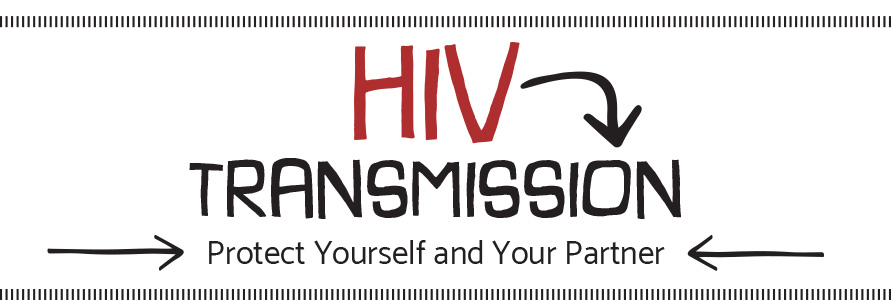HOME
PAST DIGITAL ISSUES
HIV/AIDS HOTLINES
HIV 101
POSITIVE PROFILES
ASO SPOTLIGHT
RECENT ARTICLES
HOW TO PAY FOR HIV TREATMENT AND MEDICATIONS
ADAP CRITERIA AND FORMULARIES
ASO LISTINGS
REVIEW OF HIV MEDICATIONS
2018 HIV/AIDS FUNDRAISING ACTIVITIES & EVENTS
ABOUT HIV POSITIVE! MAGAZINE
LINKS
SUBSCRIBE
CONTACT US
ADVERTISER INFORMATION

You want to protect your HIV-negative partners from becoming infected. The simple way to do this is to either refrain from high-risk sex (such as anal or vaginal sex without condoms) or always use a condom. There are also some considerations that you might think about to reduce the risk of HIV transmission to your partner or partners.
PrEP (Pre-Exposure Prophylaxis)
PrEP is a daily HIV pill, namely Truvada, that an HIV-negative person can take to prevent infection (along with using condoms). Taking it as prescribed can reduce transmission by 90% or more. This is true in both women and men and for both vaginal and anal sex. PrEP was approved by the FDA in July of 2012 and should only be done with the help of a doctor. If you have an HIV-negative sex partner, PrEP may be something to explore. Unlike using Truvada for HIV treatment, using Truvada for PrEP can be used for short periods of time when an HIV-negative individual might be at risk for exposure.
The CDC recommends that PrEP is for people without HIV who are at very high risk for getting it from sex or injection drug use. The federal guidelines recommend that PrEP be considered for people who are HIV-negative and in an ongoing sexual relationship with an HIV-positive partner.
This recommendation also includes anyone who isn’t in a mutually monogamous relationship with a partner who recently tested HIV-negative, and
is a . . .
- gay or bisexual man who has had anal sex without using a condom or been diagnosed with an STD in the past 6 months, or
- heterosexual man or woman who does not regularly use condoms during sex with partners of unknown HIV status who are at substantial risk of HIV infection (for example, people who inject drugs or women who have bisexual male partners).
PrEP is also recommended for people who have injected drugs in the past 6 months and have shared needles or been in drug treatment in the past 6 months.
If you have a partner who is HIV-positive and are considering getting pregnant, talk to your doctor about PrEP if you’re not already taking it. PrEP may be an option to help protect you and your baby from getting HIV infection while you try to get pregnant, during pregnancy, or while breastfeeding.
Because PrEP involves daily medication and regular visits to a health care provider, it may not be right for everyone. And PrEP may cause side effects like nausea in some people, but these generally subside over time. These side effects aren’t life threatening.
PrEP reaches maximum protection from HIV for receptive anal sex at about 7 days of daily use. For all other activities, including insertive anal sex, vaginal sex, and injection drug use, PrEP reaches maximum protection at about 20 days of daily use.
Some insurance will cover PrEP, for those whose insurance won’t cover PrEP, Gilead may be able to help those with lower incomes. To learn more about this program, go online at https://start.truvada.com/.
PEP (Post-Exposure Prophylaxis)
PEP stands for post-exposure prophylaxis. It means taking antiretroviral medicines (ART) after being potentially exposed to HIV to prevent becoming infected.
PEP must be started within 72 hours after a recent possible exposure to HIV, but the sooner you start PEP, the better. Every hour counts. If you’re prescribed PEP, you’ll need to take it once or twice daily for 28 days. PEP is effective in preventing HIV when administered correctly, but not 100%. PEP should only be used in emergency situations and should not be used by someone after every time they have unprotected sex or use a dirty needle.
GENITAL INFECTIONS
There’s more of a chance of passing HIV if you have sex when a sexually transmitted disease like chlamydia or syphilis is present in either partner. Even if symptoms aren’t present, active genital infections can still raise the risk. Make sure your provider regularly screen for and treat STDs.
UNDETECTABLE VIRAL LOAD
The chance for passing HIV is much less likely when the positive partner takes HIV meds and stays undetectable over time. Undetectable viral load in the blood is linked to lower and perhaps undetectable viral load in vaginal and anal fluids and semen. However, several things can briefly raise viral load in genital fluids and blood: sexually transmitted infections, other infections that challenge the immune system like hepatitis B or C, or even a recent vaccination.
Copyright 2018, Positive Health Publications, Inc.
This magazine is intended to enhance your relationship with your doctor - not replace it! Medical treatments and products should always be discussed with a licensed physician who has experience treating HIV and AIDS!